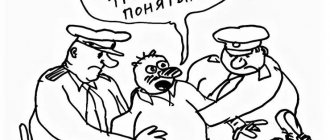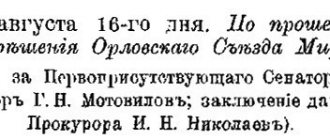Concept of an official
A Russian citizen performing the functions of a government representative is called an official. Moreover, power does not necessarily have to be state power. A person can acquire the status in question by occupying a senior position in a public institution, party, enterprise or even in a production organization. In most cases, the functions that an official performs are closely related to administrative, economic and organizational activities.
There are several definitions of the concept “official”. The Code of Administrative Offenses of the Russian Federation states that an individual has committed an administrative offense. The Criminal Code of the Russian Federation refers to a criminal offense, and the Civil Code of the Russian Federation refers to civil legal relations. If we look at the concept through the prism of the Russian elite, then we are talking about a representative of a government body of the Russian Federation. Next we should consider the definition provided by the Russian Administrative Code.
Receiving a bribe
The concept of official crime even includes receiving money from strangers for the purpose of using the official’s powers to provide these persons with various benefits or advantages. This offense has several features:
- a bribe can be given to an official personally or through an intermediary;
- it can be represented not only in cash, but also in various securities, property or other benefits;
- Even the absence of any negative actions for a company or private entrepreneur, for example, the absence of a business audit, can be considered a bribe.
A bribe necessarily represents an illegal benefit, which is characterized by property parameters. It may be issued in whole or in part free of charge.
There are even some new types of bribes, which include:
- purchase or lease of residential or non-residential premises;
- transferring money from one account to another;
- privatization of individual companies, which may be manufacturing or trading.
Of course, crimes committed by officials are usually carefully hidden. To do this, employees of various government agencies open accounts in foreign countries or register various property in the name of their relatives, who may live in Russia or another country. Often trips to foreign countries are organized, during which currency is issued.
In the Criminal Code of the Russian Federation, malfeasance in the form of a bribe is a serious illegal act. A bribe is now considered not only money, but also property or securities. Often, it is a benefit to receive vouchers for traveling or visiting a sanatorium. Even repair or construction work can be represented as a bribe.
There is even a veiled form of bribe, therefore in Art. 575 of the Civil Code establishes a ban on giving large gifts to civil servants or employees of municipal organizations, the value of which exceeds 5 minimum wages. In judicial practice, there is a case where a judge considered even the payment of food for an official in a restaurant by third parties to be a bribe.
A bribe is usually given in order for an official to perform certain actions or refuse to carry out certain operations. These actions may be part of the official duties of the employee or he may exceed his authority.
Criminal liability for malfeasance occurs both in the event of a single case of receiving a bribe, and in the event of repeated receipt of it. Additionally, extortion is included here, represented by the demand of an official to provide a certain amount of funds, and if this demand is not fulfilled, then the citizen or company can expect negative consequences. Therefore, third parties are simply forced to transfer their money to the official in order to avoid violation of their interests or rights.
Official: Art. 2.4 Code of Administrative Offenses of the Russian Federation
The Administrative Code of Russia provides a comprehensive definition of the presented concept. According to the law, an official is a citizen who is vested with certain powers in the manner prescribed by law. A person extends his functions to citizens who are not officially dependent on him.
Officials, as defined by the Code of Administrative Offenses, perform functions of an administrative, economic and administrative-organizational nature. Such persons may exercise their powers in the following public spheres:
- Russian Armed Forces;
- local government authorities;
- state and municipal organizations.
Persons who violated the duties and powers assigned to them will be punished in accordance with the articles of the Code of Administrative Offenses “On Officials”. Some such articles will be discussed in detail below.
Preventive measures
Considering all the spheres of influence that an official influences, we must not forget about the legal punishments present in Russian practice. For example, the application of certain sanctions to an organization is directly transferred to the official through disqualification or an administrative fine.
Usually the fine is commensurate with the official salary, i.e., according to the number of salaries, and disqualification is deprivation of the right to occupy an appointed position for a certain period by court decision. An example of such positions could be senior officials of the Government, regions or districts, as well as municipal officials.
About the status of an official
Who is an official under the Code of Administrative Offenses of the Russian Federation? This question can be answered, but only by first determining the status of the person. To do this, it is necessary to pay attention to the legal regulation of assigned powers. Moreover, the status does not depend on the objective implementation of the functions performed.
An official has the right to exercise the rights entrusted to him or to refrain from them. However, a citizen cannot refuse his duties. Thus, in this area an equal ratio of imperative and dispositive principles prevails. In administrative law, it is possible to identify private and public activities that fall under the jurisdiction of an official. It should be noted that such identification is possible only in the field of administrative law. Thus, in the criminal sphere, a person has the opportunity to exercise only public powers.
Main points
An official is considered to be a person with entrusted responsibilities to a representative of management or government authorities. The exercise of accepted powers occurs permanently, within the framework of specific powers or temporarily.
This administrative unit is present in the following organizations:
- local elected bodies;
- military formations of the Russian Federation;
- municipal institutions;
- state-owned companies;
- business companies, the share of voting shares of which is owned by domestic organizations.
The legal interpretation of this term and the peculiarities of its legal status are a pressing issue for many citizens.
The interpretation of “official” is so voluminous that it is sometimes difficult to identify the main characteristics
Functions of an official
The functionality of this category of persons is determined by the issues facing them and the name of the structure in which they work.
Table 1. Main functions of an official
| Administrative and economic | Organizational and administrative |
| 1. Management of property and assets on the balance sheet. 2. Inspection of material assets 3. Consideration of issues regarding the amount of remuneration for services provided. | 1. Control of labor discipline. 2. Team management. 3. Preparation of legal documents. Issuing sick leave, for example. 4. Formation of personnel. 5. Compilation of characteristics of members of the state examination commission. 6. Taking disciplinary action. 7. Organization of working conditions. 8. Establishment of a medical examination to establish disability. |
The official interacts with a wide range of people, many of whom are not directly subordinate to him
Features of an official in administrative law
The Code of Administrative Offenses establishes types of liability for both legal entities and officials. In most cases, sanctions are imposed on a citizen for improper performance of duties, or for complete failure to perform them.
Officials may bear responsibility both in the administrative sphere and in any other field. In particular, it is not uncommon for a citizen to be sentenced under criminal law. In criminal legislation, officials are understood as citizens who temporarily or permanently exercise the functions of a government representative. Chapter 30 of the Criminal Code of the Russian Federation is entirely devoted to officials.
The Code of Administrative Offenses of the Russian Federation provides a much broader and more voluminous definition. In administrative law, the subject of liability is the person who committed an offense within the scope of his powers. These are not only managers and representatives of the commanding staff, but also ordinary government employees performing administrative, economic and managerial functions.
Arbitrage practice
Let's look at a few examples from the practice of bringing officials to administrative responsibility:
No. 1. The woman worked in an organization. According to the terms of the contract, she was supposed to be compensated for travel expenses to the vacation spot. The employer did not pay her compensation and also delayed her salary.
The case was considered by the court, since the general director, as an official, had already been prosecuted for a similar offense. The representative of the organization did not agree with the violation protocol, explaining that the debt was repaid in full, which is confirmed by documents.
The court found the employer guilty, since the fact of non-payment of compensation and late payment of wages was not disputed, and the violation itself was obvious. The general director was fined 10,000 rubles. (Decision dated August 9, 2021 in case No. 5-215/2016).
No. 2. The head of the department of the State Labor Safety Inspectorate conducted an inspection of the organization and identified a number of violations of the law. Thus, the manager owed wages to 28 employees, the total amount of debt exceeded 400,000 rubles.
In addition, the director has already been prosecuted for a similar offense under Part 1 of Art. 5.27 of the Code of Administrative Offenses of the Russian Federation, he was fined 2,000 rubles. He himself explained the debts by saying that he had terminated contracts with some employees and his organization was insolvent.
The court held the employer liable under Part 4 of Art. 5.27 of the Code of Administrative Offenses of the Russian Federation and imposed a fine of 10,000 rubles. (Decision of October 26, 2015 in case No. 5-200/2015).
Officials and ordinary citizens
In the administrative and legal sphere, officials are considered to be both representatives of government authorities and some ordinary employees. So what is the difference between ordinary people and officials? According to the Code of Administrative Offenses of the Russian Federation, the category of officials includes citizens working in government bodies and performing a number of administrative and economic functions there. This should also include individuals engaged in entrepreneurial activities - the so-called individual entrepreneurs. This is where many complaints and disputes arise.
One might think that individual entrepreneurs are far from the Code of Administrative Offenses definition of “official”. If we take the activities of individual entrepreneurs, as well as violations in the sphere of exercising powers, then the legal nature will resemble the activities of ordinary legal entities. persons The motives, the nature of the acts, the composition of the violations - all this indicates the distance between the individual entrepreneur and the officials. And this is no coincidence. Recently, the legislator has really begun to move away from the identification of individual entrepreneurs and official citizens. A number of individual cases have shown that the liability of entrepreneurs has increasingly begun to be formed based on the affairs of legal entities. A simple example is a recent note to Article 16.1 of the Code of Administrative Offenses of the Russian Federation. The liability of an individual entrepreneur now falls into the legal category. persons, but not in all cases. So far, a similar rule applies to Article 7.34 of the Code of Administrative Offenses on violation of the use of land plots.
What can they be punished for?
Now let’s talk about what administrative responsibility DLs bear. It all depends on what position the person is in and what offense he committed.
In some cases, DPs are brought to criminal liability. For example, in case of abuse of power, if this resulted in a significant violation of the rights and interests of citizens and organizations.
Let's look into everything in detail.
State and municipal employees
Heads of administration, their deputies and persons appointed to perform certain functions (chief accountants, heads of personnel departments, etc.) who are in the state or municipal service may be charged for:
- Violation of the legislation on meetings, rallies, pickets, demonstrations. This will result in a fine of up to 50 thousand rubles.
- Using the advantages of official or official position during an election campaign or referendum entails a fine of up to 5,000 rubles.
- Violation of the ban on holding lotteries during a referendum or elections, if related to them, entails a fine of up to 5 thousand rubles.
- Failure to comply with legislation on the provision of state and municipal services – a fine of up to 5 thousand rubles.
- Failure to comply with the procedure for providing public services to DPs vested with executive and administrative powers, if this resulted in a violation of the rights of citizens (deadlines were missed, the service was not provided in full - up to 5,000 rubles (Part 2 of Article 5.63 of the Code of Administrative Offenses of the Russian Federation).
- Violation of budget legislation – misuse of the budget. A fine of up to 50,000 rubles and disqualification for 1-3 years are provided.
- Failure to comply with the procedure for purchasing goods and services for municipal and state needs - a fine of up to 5 thousand rubles.
- Violation of the rules for conducting auctions, selling municipal or state property, or the procedure for concluding contracts based on the results of such auctions - a fine of up to 50,000 rubles.
- Failure to comply with the deadlines for servicing and repaying state or municipal debt - a fine of up to 50 thousand rubles. or disqualification for up to two years.
- Failure to comply with the requirements for state control or supervision (violation of the deadlines for conducting an inspection, an unfounded inspection, failure to coordinate an unscheduled on-site inspection with the prosecutor's office, failure to provide a report) entails a fine of up to 5,000 rubles.
Also, municipal and state employees are brought to administrative responsibility for corruption offenses. For example, for an unreasonable refusal to provide information to a citizen or lawyer (5.39 of the Code of Administrative Offenses of the Russian Federation), bribery of voters (Article 5.16 of the Code of Administrative Offenses of the Russian Federation), illegal financing of an election campaign (5.20 of the Code of Administrative Offenses of the Russian Federation).
In the Department of Internal Affairs, the Ministry of Emergency Situations, the Armed Forces of the Russian Federation
The list of officials of the Ministry of Internal Affairs includes employees authorized to draw up protocols on administrative offenses (Order of the Ministry of Internal Affairs of the Russian Federation dated 05.05.2012 No. 403 “On the powers...”). It includes the Central Office of the Ministry of Internal Affairs, heads of departments and their deputies, heads of divisions and departments, district police officers, and detective officers.
The police prosecute DPs for violations under Art. 2.4 of the Code of Administrative Offenses of the Russian Federation, and for other offenses (2.5 of the Code of Administrative Offenses of the Russian Federation):
| Type of violation | Sanctions |
| Installation of deliberately false registration plates | Fine up to 20 thousand (officials responsible for the operation of transport are involved) |
| Installation of non-compliant lighting devices on the front of the vehicle | Fine up to 20,000 with confiscation of devices |
| Illegal restriction of rights to drive and operate a vehicle | Fine up to 20 thousand. |
| Failure to provide information or provision of knowingly incorrect information to the body that controls public procurement | Fine up to 15,000 |
This is just a small list of offenses for which officials of the Ministry of Internal Affairs can be held accountable.
Customs officials, the Federal Penitentiary Service, and military personnel may also be held accountable for failure to perform or improper performance of duties. Most often - to disciplinary, if there are grounds - to administrative.
Legal entities
Officials of organizations can also be punished under the Code of Administrative Offenses of the Russian Federation. For example, fines for DPs for gross violation of accounting requirements are up to 10,000, for a repeated offense - up to 20,000. They can also be disqualified for up to two years.
There are also fines for violating fire safety. For example, for failure to comply with safety rules in forests, you will be fined up to 20 thousand (Part 1 of Article 8.32); by rail, sea or air transport – up to 5,000; in premises and other facilities - up to 15,000. The organization can be fined up to 200,000.
There is also administrative liability for violation of labor laws, but I will talk about this in detail below.
In the field of government procurement
Officials responsible for public procurement of goods and services for state and municipal needs may be prosecuted for the following violations under the Code of Administrative Offenses of the Russian Federation:
- Making a decision to purchase goods from one supplier in violation of legal requirements entails a fine of up to 30 thousand.
- Failure to comply with the procedure and deadlines for posting information about procurement is a fine of up to 5,000 (Part 1 of Article 7.30).
- Failure to comply with the procedure for concluding or amending a contract is a fine of 1% of the initial price, but not more than 30,000.
They may also be punished for violating legislation in the field of contract procurement, the procedure for determining the price of a product or service, or refusal to conclude a contract for the execution of a defense order.
In the field of procurement, legal entities may be subject to other sanctions for the above offenses.
Individual entrepreneurs
Citizens engaged in entrepreneurial activities without forming a legal entity bear administrative responsibility as officials, unless otherwise provided by the relevant article of the Code of Administrative Offenses of the Russian Federation.
For example, for carrying out business activities in the field of transport without a license, when it is required by law, you will be fined up to 100,000 rubles. (Part 1 of Article 14.1.2). There is a note below in the article that confuses many people. It says that individual entrepreneurs are liable for this offense as legal entities, for which the fine is higher - up to 400 thousand rubles. But judicial practice has developed in such a way that sanctions are applied specifically for individual entrepreneurs, and the fine does not exceed 100,0000 rubles.
Special disciplinary responsibility
Responsibility for violation of job instructions
Offenses by officials
The “special part” of the Russian Administrative Code contains 442 articles. Of these, 330 are devoted to the responsibility of officials—that’s almost three quarters. Most of the articles are devoted to the entrepreneurial and organizational and economic activities of citizens. It is worth highlighting offenses in the following areas:
- encroachment on civil rights (50 articles from Chapter 5 of the Code of Administrative Offenses of the Russian Federation);
- protection of property (29 articles from Chapter 7 of the Code of Administrative Offenses of the Russian Federation);
- ecology, environmental management and environmental protection (38 articles from Chapter 8 of the Code of Administrative Offenses of the Russian Federation);
- agriculture, land reclamation and veterinary medicine (14 articles from Chapter 10);
- communication and information (23 articles from Chapter 13 of the Code of Administrative Offenses of the Russian Federation);
- industry, energy and construction (14 articles from Chapter 9);
- finance and taxes, as well as business activities (59 articles from chapters 14 and 15);
- customs sphere (21 articles from Chapter 16);
- encroachment on government bodies of the Russian Federation (10 articles from Chapter 17);
- military registration (4 articles from Chapter 21);
- management order (19 articles from Chapter 19).
Thus, the responsibility of officials in the Code of Administrative Offenses is provided for almost everywhere.
Sanctions for offenses
Are there any special types of sanctions for officials? The Russian Administrative Code states that imposing punishment on an organization does not exempt officials from liability. The most common type of punishment for such citizens is an administrative fine and disqualification.
In the latter case, we are talking about deprivation of the opportunity to hold a professional position for a period determined by the court. A simple example is the highest official of a constituent entity of the Russian Federation. The governor, head of the republic, district or any other region may be dismissed for any offense. Sometimes disqualification may coincide with lustration - but only in cases of change of power throughout the country.
Procedure for bringing to responsibility
The step-by-step algorithm depends on which body will be involved under the Code of Administrative Offenses of the Russian Federation. For example, if the sanctions of the article provide for a maximum fine, a resolution of the supervisory authority will be sufficient. If arrest or disqualification is possible, the case must be considered by the court.
Let's consider the procedure for attracting in case of violation of labor laws:
- An employee whose rights have been violated files a complaint with the labor inspectorate. This can also be done through the Onlineinspection.rf service. The review period is 30 calendar days.
- If necessary, an on-site unscheduled inspection is organized, but may be limited to simply checking documents.
- If a violation is detected, the inspector draws up a report. Within 15 days, a decision on prosecution is also issued.
In total, it usually takes no more than one month to verify the complaint. Based on the results, the employer receives a resolution with a fine, and the complaining employee receives a written report on what measures have been taken.
Consequences
First of all, violation of the Code of Administrative Offenses of the Russian Federation negatively affects the reputation of a company or institution, but that’s not all. If an employer commits a repeated offense, the sanctions for him may be tougher: higher fines, longer disqualification periods, etc.
Examples of officials
It is not so easy to determine an official by legal status alone. The Code of Administrative Offenses, unfortunately, does not provide detailed information about individual types of professions. That is why it is worth considering examples from practice.
Often citizens get a job, after which they cannot understand whether they are officials. Rights and responsibilities in this case are the best way to determine status. For example, you can take a storekeeper. It would seem that such an employee can acquire the status in question? In fact, he can if he signs a document on financial responsibility. In this case, he will have administrative powers and will have the right to accept or issue goods at his own discretion. This happens, but not often: sometimes employers decide to entrust their subordinates with some of their own functions. Whether this is good or not is a moot point. Ordinary workers, having received the status of an official, acquire a special type of responsibility. Therefore, they may be subject to sanctions if the entire organization commits violations.
Assigning authority to another person
Another type of malfeasance is the appropriation of any authority that actually belongs to another employee. Based on such an action, the citizen carries out operations that are contrary to the law. This certainly leads to the violation of the rights or interests of citizens, the entire society or any companies.
Some individuals may usurp the titles or authority of other officials, and on the basis of this they commit dangerous actions. They are criminal, therefore they are listed in Art. 30 CC. They violate the interests of the entire state, as well as the service.
Assignment of powers belonging to another person can be expressed in various actions:
- announcing oneself to other employees;
- use of false documentation;
- use of specialized uniforms.
Based on the above actions, a malfeasance is committed. In this case, a person uses various powers and capabilities that he is not actually endowed with. For example, he can receive visitors or make decisions on various cases, stop citizens' cars, or use other methods for his own profit. Such actions are, according to Art. 288. Criminal Code of the Russian Federation, malfeasance.
Criminal liability is applied if there is evidence of a specific person’s guilt. A citizen must be aware that he is deliberately taking advantage of the special powers that another employee has in order to commit unlawful actions.
Rights and obligations of officials
From the problem of assigning responsibility to officials, it is worth moving on to the problem of assigning responsibility on behalf of such citizens. Officials from the system of government bodies have the duty of protecting the state system and combating lawlessness. Their main task is to ensure expedient, conscientious, fair and legal bringing of order violators to administrative responsibility. To do this, a circle of government officials is determined, who are officials, after which they are vested with powers.
More than sixty supervisory authorities consider administrative cases, of which there are about four hundred in the Administrative Code. For example, police departments deal with 50 types of violations, among which are the areas of traffic, law enforcement, etc. In police departments, officials are managers and their deputies. These are the people who consider cases of violation of the law.
Responsibility for violation of labor law
For failure to comply with labor legislation, the employer as a DP may be held liable under Art. 5.27-5.34 Code of Administrative Offenses of the Russian Federation.
What offenses are punishable for:
- Failure to comply with labor protection requirements.
- Delay of salaries and other payments.
- Unreasonable refusal to conclude a contract.
- Unjustified dismissal.
- Failure to fulfill obligations under the contract.
- Dismissal of workers due to a collective dispute or strike.
- Avoidance of participation in conciliation procedures or receipt of demands from employees.
Let's look at each situation in detail.
Refusal to hire
First let's look at Art. 3 Labor Code of the Russian Federation. It says that an employer cannot refuse to employ a person on religious grounds; because of race, nationality, gender; family, official or social status.
If you refuse to hire someone, you may be required to submit a written refusal - it must indicate the reasons. If you do not justify the refusal in any way or violate the provisions of Art. 3 of the Labor Code of the Russian Federation, you may be complained about to the labor inspectorate. An inspector who discovers a violation may be held liable under Part 1 of Art. 5.27 of the Code of Administrative Offenses of the Russian Federation, which provides for various fines:
- for officials – up to 5 thousand;
- for organizations – up to 50 thousand;
- for entrepreneurs – up to 5,000.
You can get off with a warning if the violation is minor and you have not been held accountable before.
If an official, company or individual entrepreneur was previously involved under Part 1 of Art. 5.27 of the Code of Administrative Offenses of the Russian Federation, the sanctions will be different. For DPs and entrepreneurs, the fine will be up to 20,000, for legal entities – 50-70 thousand.
Illegal dismissal
Dismissal may be considered illegal if the procedure was carried out in violation of legal requirements.
For example:
- They forced a person to resign of his own free will, although he did not want to.
- They did not require an explanatory note if the contract was terminated at the initiative of the employer for the guilty actions of the employee (81 Labor Code of the Russian Federation).
- The notice period for dismissal due to staff reduction or liquidation of the enterprise was violated (two months).
- The preemptive right to remain in position in case of layoffs was not respected.
- There were no grounds for terminating the contract. For example, if you were fired for absenteeism, which the employee did not commit.
There can be many reasons, but the consequences are usually the same. If a former employee complains to the labor inspectorate and the inspector finds a violation, they may be fined under Part 1 of Art. 5.27 Code of Administrative Offenses of the Russian Federation. For DL, the fine amount is up to 5,000 rubles.
An illegally dismissed employee can go to court and demand reinstatement, recovery of average earnings for the period of forced absence and compensation for moral damage.
Evasion of drawing up an employment contract
Hiring is formalized by an employment contract. Unreasonable refusal to conclude an agreement is prohibited (64 Labor Code of the Russian Federation). This is enough to formalize everything properly, especially since the contract is considered concluded from the moment of actual permission to work.
However, for an unfounded refusal to conclude a contract, they may be brought to administrative liability under Part 4 of Art. 5.27 Code of Administrative Offenses of the Russian Federation. For example, if you promise an employee that everything will be processed “someday later” or you simply ignore his requests.
If you are an official, you can be fined up to 20 thousand. For individual entrepreneurs, the fine is up to 10,000. Legal entities are least fortunate: for them the amount can reach 100,000.
Non-payment of wages
For those who like to violate the deadlines for paying salaries or not pay them in full, there is also an article - Part 6 of Art. 5.27 Code of Administrative Offenses of the Russian Federation. But provided that you do not pay your salary in full or in part for no more than three months, otherwise criminal liability will arise under Art. 145.1 Code of Administrative Offenses of the Russian Federation.
If you do not pay your salary for up to three months, the inspector has the right to fine you up to 20,000 (for officials). For individual entrepreneurs, the fine is lower – up to 5,000. An organization can be “punished” by 50,000.
Violation of labor protection requirements
For violating the requirements of labor protection legislation, they may be charged under Art. 5.27.1 Code of Administrative Offenses of the Russian Federation. DL or individual entrepreneur will be fined up to 5,000, organization - up to 80 thousand.
Here are some situations where this is possible:
- There are no labor safety instructions, although there should be some.
- Labor safety training programs for workers are not implemented.
- Rules and instructions are not followed.
There are other violations for which separate sanctions are provided:
| Offense | What threatens the official |
| Failure or improper conduct of a special assessment of working conditions | Warning or fine up to 10 thousand. |
| Admission of an untrained employee to work if training is required by law, as well as admission of an employee without a medical book when one is needed | Fine up to 25,000 |
| Failure to provide personnel with personal protective equipment when they are required (for example, when working in harmful and/or dangerous conditions) | Fine up to 30 thousand. |
| Repeated commission of the above violations by a person subjected to administrative punishment | Fine up to 40,000 or disqualification for up to three years |
A person is considered subject to administrative punishment within one year from the date of the end of the decision on bringing to responsibility.
Unreasonable refusal to conclude a collective agreement
If during negotiations the employees managed to approve the final version of the collective agreement with you, and then you suddenly and unmotivatedly refused to sign it, you may be fined up to 5,000 rubles. But provided that you act as an employer. The form of activity of the enterprise does not matter.
Dismissal of employees due to a strike or collective dispute
During a strike, an employee may hand in his resignation and you must fire him. With or without working out, it's up to you. If the termination of the contract is not related to retirement or other extenuating circumstances, you can oblige him to work for another two weeks.
Another thing is dismissal due to a strike or collective dispute. I’ll say right away that this is illegal for several reasons:
- An employee’s participation in a strike is not a violation of labor discipline. For this period, he retains his job (414 Labor Code of the Russian Federation).
- The contract can be terminated only if the court has declared the strike illegal and the decision has entered into force. But provided that the employee does not comply with the requirements of the decision and continues to “go on strike” (Part 6 of Article 413 of the Labor Code of the Russian Federation).
If you nevertheless fired an employee and he complained to the labor inspectorate, after an inspection you will be fined up to 5,000 (5.34 Code of Administrative Offenses of the Russian Federation).
Tasks of officials
It is worth considering the work of officials in identifying offenses using the example of the Department of Internal Affairs. It is this authority that carries out most of the functions in the field of crime prevention and suppression. Cases of the following nature are being considered:
- violation of the rules of stay at the state border;
- appearing in public places while drunk;
- petty hooliganism;
- drinking alcohol in public places;
- violation of road safety rules, etc.
The power of the Department of Internal Affairs affects many spheres of public life, but it is not unlimited. It is also worth noting that actions and inactions of an official that do not comply with the law can be identified and condemned by another official.
Types of crimes
Officials are endowed with numerous powers and opportunities, which they often abuse for personal gain. Such actions are a serious offense. There are several types of malfeasance. We will talk about them a little later, having considered the features of each category of illegal acts.
Crimes committed by officials must be thoroughly investigated. Punishment is imposed exclusively by the court, for which all the circumstances of a particular case are studied. In this case, different articles of the Criminal Code can be applied, for which specific actions committed by citizens are identified.
Authorized authorities
Which officials have the right to decide cases of administrative offenses? It all depends on the severity of the violation of the law. So, it is worth paying attention to the following authorities:
- customs and tax authorities, military registration and enlistment offices, border services;
- ATS;
- executive agencies;
- collegiate administrative commissions;
- commissions for minors;
- magistrates, as well as judges from district and regional courts.
Civil servants in Russia are divided into federal and regional. The Parliament, the Government and the President operate at the federal level. At the regional level - the highest official of the constituent entity of the Russian Federation, regional authorities and courts.
False testimony
This crime is regulated by Art. 307 of the Criminal Code. This includes situations:
- giving deliberately false testimony in various cases;
- incorrect expert opinion, and false information is intentionally entered by a specialist, since in this way he can obtain a certain benefit for himself;
- incorrect translation from any foreign language.
Most often, such situations arise when, when considering a case, you have to resort to the help of experts. They may give deliberately false conclusions in order to provide an opportunity for the criminal to escape responsibility. Additionally, this includes an incorrect assessment of various facts, which leads to corresponding conclusions.
Such actions of specialists are committed by them deliberately. They are implemented by people who have certain unique knowledge and experience in various unique fields, which include medicine, technology or science. Typically, such knowledge is required during an inquiry, conducting a preliminary investigation or during court proceedings.
Often such crimes are committed by medical experts who conduct examinations based on orders from a court or other government agency. The expert must be represented by an experienced physician with appropriate education and special training. He must work as a full-time forensic medical examiner. If the required specialist is not available on staff, then it is possible to attract a doctor of a suitable specialty. He takes part in the examination based on the existing profile. He is called in official documents an expert doctor.
Before conducting an examination or participating in a preliminary investigation and at a court hearing, the expert is warned in advance that he is liable for giving false testimony on the basis of Art. 307 of the Criminal Code.








